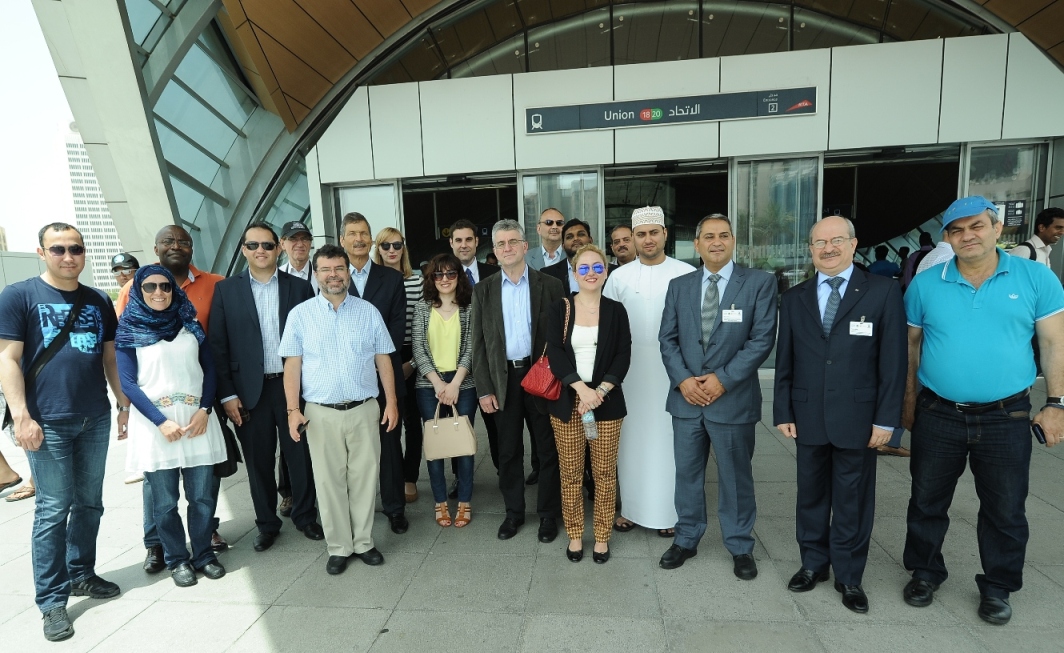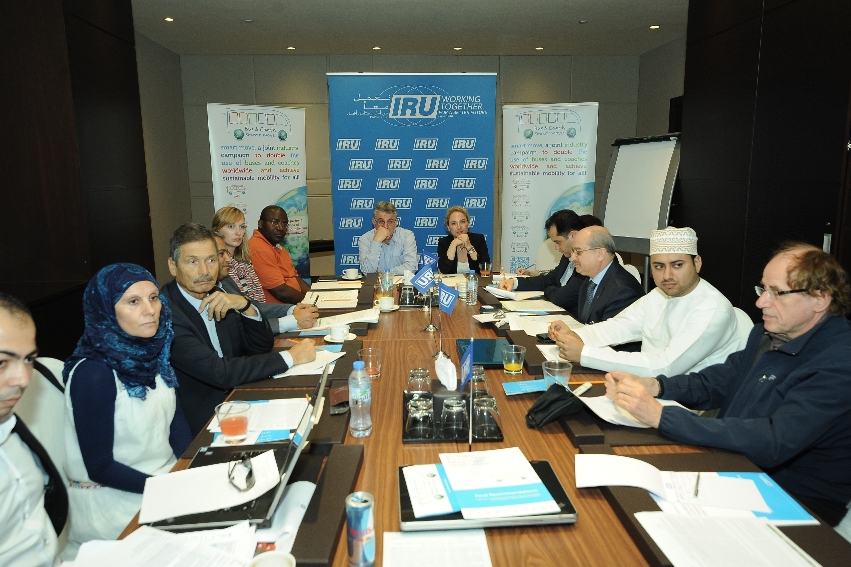ATCUAE President Sulayem says Dubai Metro points the way forward; urban planners urged to address traffic growth, make better use of space
Dubai, UAE 2 June, 2015: Urban planners in the Middle East and North Africa have been urged to
develop cities built around mass non-motorised transport rather than expand infrastructures to accommodate the continued build-up of private vehicles on the region’s roads.
The plea was made by a transport expert yesterday as delegates at the three-day workshop on “Sustainable Urban Mobility Planning”, hosted by the Automobile and Touring Club of the UAE, were given a close-up view of the Dubai Metro, which has transformed public transport in the city.
Jointly organised by the International Road Transport Union (IRU), the German International Cooperation (GIZ) and the Islamic Development Bank Group (IsDB), the event concluded with a visit by delegates and officials to a Dubai Metro station control room, hosted by the Roads and Transport Authority (RTA).
Manfred Breithaupt, Senior Transport Advisor, GIZ, said: “Cities in the member countries are growing at a rapid pace so we cannot continue with the old paradigm and just provide more road facilities for private vehicles.
“We have to look how to better utilise the available space whilst providing mass transit to non-motorised transport wherever possible. Integration will be key and it is vital that we provide a better choice for travellers to have a real valid option against the use of private vehicles.
“From discussing sustainable urban transport with the participants at the workshop we have found out that like in other countries around the world, here in the MENA region it is also very important to go towards more sustainable mobility solutions.”
ATCUAE President Mohammed Ben Sulayem said: “It’s clear that changes are needed in the way cities are designed to allow people to move around. Dubai has shown the way forward with the Metro, and it’s obvious that more must be done to reduce traffic congestion on our roads.”
Oleg Kamberski, the IRU’s Head – Passenger Transport, had told delegates that Smart Move, a global plan to double the use of buses and coaches, was key to a sustainable transport solution, and can bring major environmental benefits, cut road deaths and reduce traffic congestion.
Said Kamberski: “For us it is very important to be here, not only to participate and support this workshop which is bringing the best world experts in the urban planning and transport together, but also to make a proposal to colleagues here in the region.
“We want to start a way forward, which is in the form of a public Smart Move High Level Group to work out a plan for the short medium and long term of how together we can tackle the main mobility problems in the region.”
Ahmed Al Qabany, Urban Development Specialist, Islamic Development Bank, said: “The workshop is part of our efforts in promoting sustainable transport and is the starting point for our future plans whereby we hope to implement actual projects in some of are 56 member countries.
“We expect a lot of the attendees to start working on their sustainable and urban transport plans, and the Islamic Development Bank stands ready to support their ideas both technically and financially.”
Sulayem later presented all attendees at the workshops with certificates signed by himself, the IRU, GIZ and IsDB.


